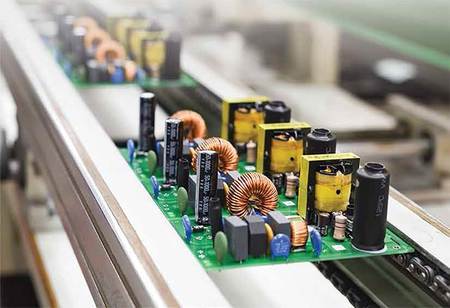
Tamil Nadu Targets $100 Billion Output Through New Electronics Policy by 2025


The Tamil Nadu government has unveiled ambitious electronic hardware manufacturing policy. The policy has been the part of which it aims to offer skill training to over one lakh people in the next four years to aid the employment in the sector.
The electronic hardware manufacturing policy was unveiled by chief minister Edappadi K Palaniswami aims to alter the state into a globally competitive electronics system design and manufacturing (ESDM) destination.
The policy is seeking to elevate Tamil Nadu’s electronics industry output to $100 billion and to contribute 25 percent of total electronic exports from India by 2025. The electronics policy is expected to raise the level of value addition that is done in Tamil Nadu, particularly concentrating on sectors such as mobile handsets, fables chip design, LED products, PCBs, solar photovoltaic cells, besides medical and automotive electronics.
Additionally, the state has also classified its districts into Class A, B and C for state-level incentives and moved from the Centre’s electronic manufacturing clusters (EMC) scheme. On the other hand, Chennai and its neighboring Thiruvallur, Kancheepuram, and Chengalpet are divided as category A as units making or assembling electronic hardware and mobile handsets already operate in the region.
While Coimbatore, Cuddalore and Vellore fall under category B. Several southern and western districts as well as industrially backward regions such as Villupuram, Thiruvannamalai, and Dharmapuri come under category C which would enable new industrial units to get higher financial incentives.
The industries under MSMEs, large and mega projects are classified as the state has offered varied incentives in line with the size of investments and employment potential. The government would formulate incentives for MSMEs to aid in scaling up their business to serve as vendor base for a large and mega investor.
The electronics manufacturing policy is focused on skilling, with incentives being offered to industrial units for training first-time employees. It also monitors a higher incentive for training women. The state –owned agencies like Sipcot, Sidco and Elcot would provide ready built infrastructure while the private sector would be encouraged to establish ESDM Park.